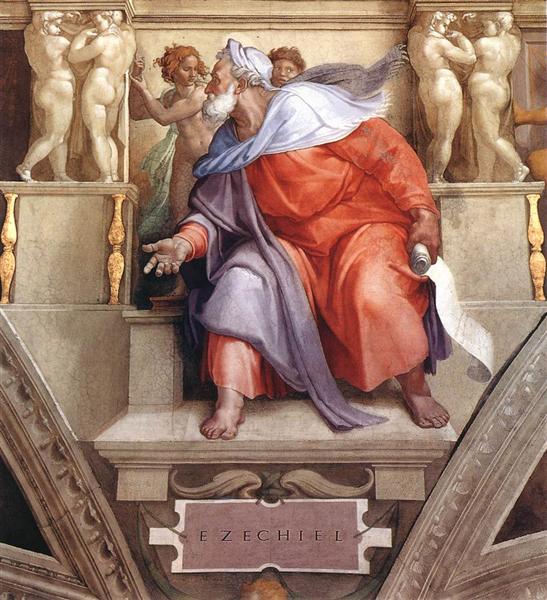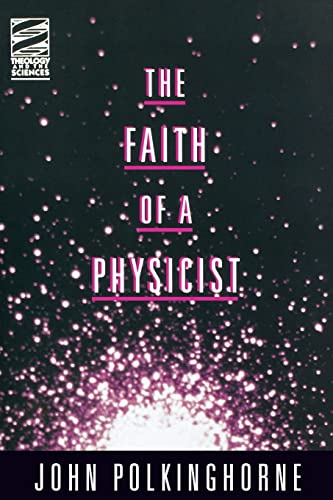 This past Sunday, I am told, was Pastor Appreciation Day, and October is Clergy Appreciation Month. To all of my friends and colleagues in parish ministry, including many former students–thank you for all that you do, every day and every month! But perhaps there is also no better time than this to remind one another of the dangers of pastoral overwork , including the risk of burnout, and of our need for good support systems and self-care. In recent weeks, tennis star Naomi Osaka and gymnastics great Simone Biles have both chosen to withdraw from some competitions, to conserve their own mental and emotional health. Their controversial choices have put self-care into the headlines. By contrast, clergy far too often ignore self-care, with devastating personal results.
This past Sunday, I am told, was Pastor Appreciation Day, and October is Clergy Appreciation Month. To all of my friends and colleagues in parish ministry, including many former students–thank you for all that you do, every day and every month! But perhaps there is also no better time than this to remind one another of the dangers of pastoral overwork , including the risk of burnout, and of our need for good support systems and self-care. In recent weeks, tennis star Naomi Osaka and gymnastics great Simone Biles have both chosen to withdraw from some competitions, to conserve their own mental and emotional health. Their controversial choices have put self-care into the headlines. By contrast, clergy far too often ignore self-care, with devastating personal results.
But pastoral overwork is also damaging to the communities that we serve, and to the faith that we profess. Indeed, Parker Palmer calls such workaholism “‘functional atheism,’ the belief that ultimate responsibility for everything rests with us” (Let Your Life Speak: Listening for the Voice of Vocation [San Francisco: Jossey-Bass, 2000], 88).

As a Bible Guy, I tend to think in biblical rather than theological or psychological terms. Specifically, this issue calls Exodus 18 to my mind. Here, Jethro follows his famous son-in-law Moses through what appears to be a typical work day, and at day’s end tells him,
What you are doing isn’t good. You will end up totally wearing yourself out, both you and these people who are with you. The work is too difficult for you. You can’t do it alone (Exod 18:17-18).
Exodus 18 is an old northern, or E, tradition in the Pentateuch–so called because of its preference for the Hebrew title ‘elohim (“God”) rather than the personal Divine Name Yhwh (typically rendered as “the LORD,” in all caps). Northern traditions in the Pentateuch do use Yhwh once the Name has been revealed to Moses (Exod 3:9-15), but they remain reluctant to use it too frequently. In this chapter, only Exodus 18:1 and 8-11, use “the LORD”–in each case, for a reason. These verses all recall the deliverance from Egypt, calling the Name particularly to mind. Indeed, in 18:11, the Name is necessary to distinguish the LORD from other deities: “Now I know that the LORD is greater than all the gods [kol–ha’elohim], because he delivered the people from the Egyptians.” Otherwise, the Divine is referred to throughout this chapter as “God” (Exod 18:1a, 4, 5, 12 [twice], 15, 16, 19 [three times], 21, 23).
Further, Moses’ father-in-law is called Jethro here (Exod 18:1, 2, 5, 6, 9, 10, 12; compare Exod 3:1; 4:18) rather than Reuel (Exod 2:18) or Hobab (Num 10:29; see also Jdg 4:11), the names used in the old southern epic (usually called J, for the Germanic spelling of the Divine Name, JHVH, from which we get “Jehovah”). The focus on Moses in this chapter is also typical of northern traditions. What is surprising, however, is that this passage is critical of Moses. Elsewhere, northern traditions exalt Israel’s liberator (for example, Num 12:6-8; Deut 5:1-5).

By contrast, this chapter is remarkable for its very human portrayal of Moses. St. John Chrysostom wrote,
For nothing was more humble than he, who being the leader of so great a people, and having overwhelmed in the sea the king and the host of all the Egyptians, as if they had been flies, and having wrought so many wonders both in Egypt and by the Red Sea and in the wilderness, and received such high testimony, yet felt exactly as if he had been an ordinary person. As a son-in-law he was humbler than his father-in-law; Moses took advice from him and was not indignant (“Homilies on 1 Corinthians 1.4,” cited in The Ancient Christian Commentary on Scripture, Vol. 3, ed. Joseph T. Lienhard; gen ed. Thomas Oden [Downers Grove, IL: Intervarsity, 2001], 94).
In our chapter, Moses tells Jethro of the Lord’s deliverance of Israel from Pharaoh, and from the hardships they have faced so far in the wilderness. Jethro rejoices, and declares “the LORD is greater than all gods” (Exod 18:11). Then the Midianite priest offers a sacrifice to the Lord, followed by a sacred meal in which Moses’ brother, the priest Aaron, also participates (Exod 18:12).
This scene would have been highly significant to the old northern priestly families who preserved this tradition. Through much of Israel’s history, the right to serve as priests was denied those northern Levites. The southern Jerusalem priests claimed that only they, the rightful descendants of Aaron, could offer sacrifices. But in this northern tradition the right to priestly service is given even to Moses’ Midianite father-in-law, with Aaron himself giving his blessing by eating bread with Jethro “in the presence of God” (18:12).
Many early Jewish and Christian interpretations wrestle with this inclusion, and can only accept Jethro’s role by seeing his confession in Exod 18:10-11 as a conversion! In Targum Pseudo-Jonathan of Exod 18:6, Jethro tells Moses that he has come in order to convert (Aramaic l’tgyyr’, see also Exod Rab 1:32; Tankha Buber Yitro, 5; and Mekhilta). Among Christian interpreters, Cyril of Alexandria and the Venerable Bede also see this scene as Jethro’s conversion.
On the other hand, Josephus notes that Moses here gives due praise to a Gentile! He did not
conceal the invention of this method; nor pretend to it himself: but informed the multitude who it was that invented it. Nay he has named Raguel [alternate spelling of Reuel {see Num 10:29, KJV}; i.e., Jethro] in the Books he wrote, as the person who invented this ordering of the people (Ant III. 4.2; http://penelope.uchicago.edu/josephus/ant-3.html),
Similarly, St. Augustine wrote:
Moses very prudently and humbly yielded to the advice of his father-in-law, foreigner though he was. . . For he realized that from whatever intellect right counsel proceeded, it should be attribute not to him who conceived it but to the One who is truth, the immutable God (On Christian Teaching, Prologue 7).
A similarly inclusive approach to ministry is found in the parallel to this passage in Numbers 11:11-17. There, Moses has no problem with Eldad and Medad who, despite not having been present at the consecration of the seventy elders, spontaneously prophesy at the spirit’s prompting: “Would that all the Lord’s people were prophets, and that the Lord would put his spirit on them!” (Num 11:29; compare Mark 9:38-40).
As we noted at the beginning of this blog, Jethro stays with Moses for awhile, watching quietly as his son-in-law works through a long day. Only at the day’s end does Jethro question what he has seen: “What’s this that you are doing for the people? Why do you sit alone, while all the people are standing around you from morning until evening?” (Exod 18:14). There is an ambiguity in this question not apparent in translation. The Hebrew la’am could mean, not “for the people,” but “to the people (as in Gen 12:18; 20:9; 26:10)—perhaps already implying that Moses’ actions are harming, not helping them.
Moses’ answer (Exod 18:15-16) reveals a threefold job description. First, the people come “to inquire of God” (18:15). In the Hebrew Bible, to “inquire of [Hebrew darash] God/the Lord” often means to consult a prophet concerning God’s will (for example, 1 Kgs 22:8//2 Chr 18:7; 2 Kgs 3:11; 8:8; 22:13, 18//2 Chr 34:21, 26). So, Moses is a prophet. In fact, we could perhaps more accurately say that Moses is the prophet: Deuteronomy 34:10 says “No prophet like Moses has yet emerged in Israel; Moses knew the LORD face-to-face!” This does not mean that Moses was engaged in fortune-telling, predicting the future of each inquirer—what we today may think of when we hear the word “prophet.” Rather, Moses is God’s messenger, communicating God’s will to the people.
Second, Moses is a judge: “When a conflict arises between them, they come to me and I judge between the two of them” (Exod 18:16). The roles of prophet and judge are not entirely distinct; Deborah was both prophet and judge (Jdg 4:4-5); as was Samuel (1 Sam 3:20-21; 7:15-17). However, the task of deciding matters of law is in Deuteronomy 21:1-5 assigned not to prophets, but to priests. This puts a whole new spin on the role Moses is seen to fill in this text. For the priests were also given a limited, semi-prophetic role: they could use the Urim and Thummim (apparently a sacred lot) to “inquire of the LORD” (Deut 33:8; for how the sacred lot was used, cf. 1 Sam 14:3, 41-42 and 23:1-6). As prophet and judge, Moses, it seems, is filling a priestly role as well.
This impression is strengthened by the third role Moses holds in Exodus 18:15-16. Moses is a teacher: “I also teach them God’s regulations and instructions” (18:16). Here again, we might say that Moses is the teacher (Deut 4:1-5), as he is the one who will receive the Law from God on Horeb (the name northern traditions use for the mountain elsewhere called Sinai). However, teaching the law was a task particularly assigned, in all the traditions, to the priestly house of Levi (for example, Lev 10:11; Deut 24:8; Ezek 42:23-24; Mal 2:6-7). So by describing Moses as prophet, judge, and teacher, Exodus 18:15-16 may also be claiming for Moses another role, as priest.
From the viewpoint of the old northern priestly families, this would have been important, since many appear to have traced their own descent from Moses himself, as the genealogy of the priests of Dan in Judges 18:30 reveals. In the Hebrew of this passage, in both the Leningrad and Aleppo Codices, scribes apparently offended by this claim have inserted a superscripted letter nun into the name “Moses” (presumed by the Greek Septuagint and the Latin Vulgate), changing it to “Manasseh” (see the KJV of Jdg 18:30)! For the purposes of this study, this indicates yet another burden placed upon Moses, which he evidently believes that he must bear alone (Exod 18:14, 18; cf. Num 11:14).
Although, as we have seen, Jethro was the priest of Midian, in this chapter he is called Moses’ father-in-law (Hebrew khoten) thirteen times (18:1, 2, 5, 6, 7, 8, 12 (twice), 14, 15, 17, 24, 27), and a priest only once (18:1; see Terence Frethheim, Exodus, Interpretation [Louisville: John Knox, 1991], 195). Jethro responds to Moses’ inhuman workload as any caring parent would, telling him, in no uncertain terms, “What you are doing isn’t good” (18:17)!

First, it is not good for Moses, and for obvious reasons: “You will end up totally wearing yourself out . . . The work is too difficult for you. You can’t do it alone” (Exodus 18:18). Long before contemporary psychotherapists came up with the term “burnout,” Jethro described the condition to a tee.
But the danger was not to Moses alone—as the Hebrew of Jethro’s initial question (“what are you doing to the people”) has already implied. In full, Jethro says, “You will end up totally wearing yourself out, both you and these people who are with you.” What Moses is doing is not only self-destructive, but destructive to the community as well.
The workaholic’s conceit is always, “I can’t quit now. They are all depending on me.” That may well be true—but if it is, then “they” are all being deprived of their rightful opportunity to make their own decisions and to live their own lives. Jethro’s proposal of delegated authority not only gives Moses a much-needed rest, it also empowers the community. Like Moses, we may try to “do it all” for the best of reasons, out of a profound desire to help. However, that sort of “help” swiftly becomes coercive, even pathological—not ministry, but codependency. Once more, Jethro diagnosed the disease long before it was given its own label in the psychotherapeutic dictionary.
Jethro proposes that Moses seek out “capable persons who respect God. They should be trustworthy and not corrupt. ” (Exodus 18:21). This is a checklist that could scarcely be improved upon today for identifying people in our communities worthy of the task of leadership. What is more, Jethro confidently expects Moses to discover that such people are not rare. He will find enough to place some “over thousands, hundreds, fifties and tens” (18:21). Jethro gently informs Moses that God can work through others, too; there are plenty of people capable of sharing his burden.
Notice that Jethro does not tell Moses to stop caring—or even to change his job description. Moses is to continue in his priestly role, as prophet, judge, and teacher:
Your role should be to represent the people before God. You should bring their disputes before God yourself. Explain the regulations and instructions to them. Let them know the way they are supposed to go and the things they are supposed to do (Exod 18:19-20).
The cure for Moses’ burnout—and ours—is certainly not quietism, noninvolvement, or apathy. Rather, Jethro tells Moses to go right on doing what he has been doing, but with a difference. Moses must acknowledge that he cannot, and should not, do it all alone—that he needs help.
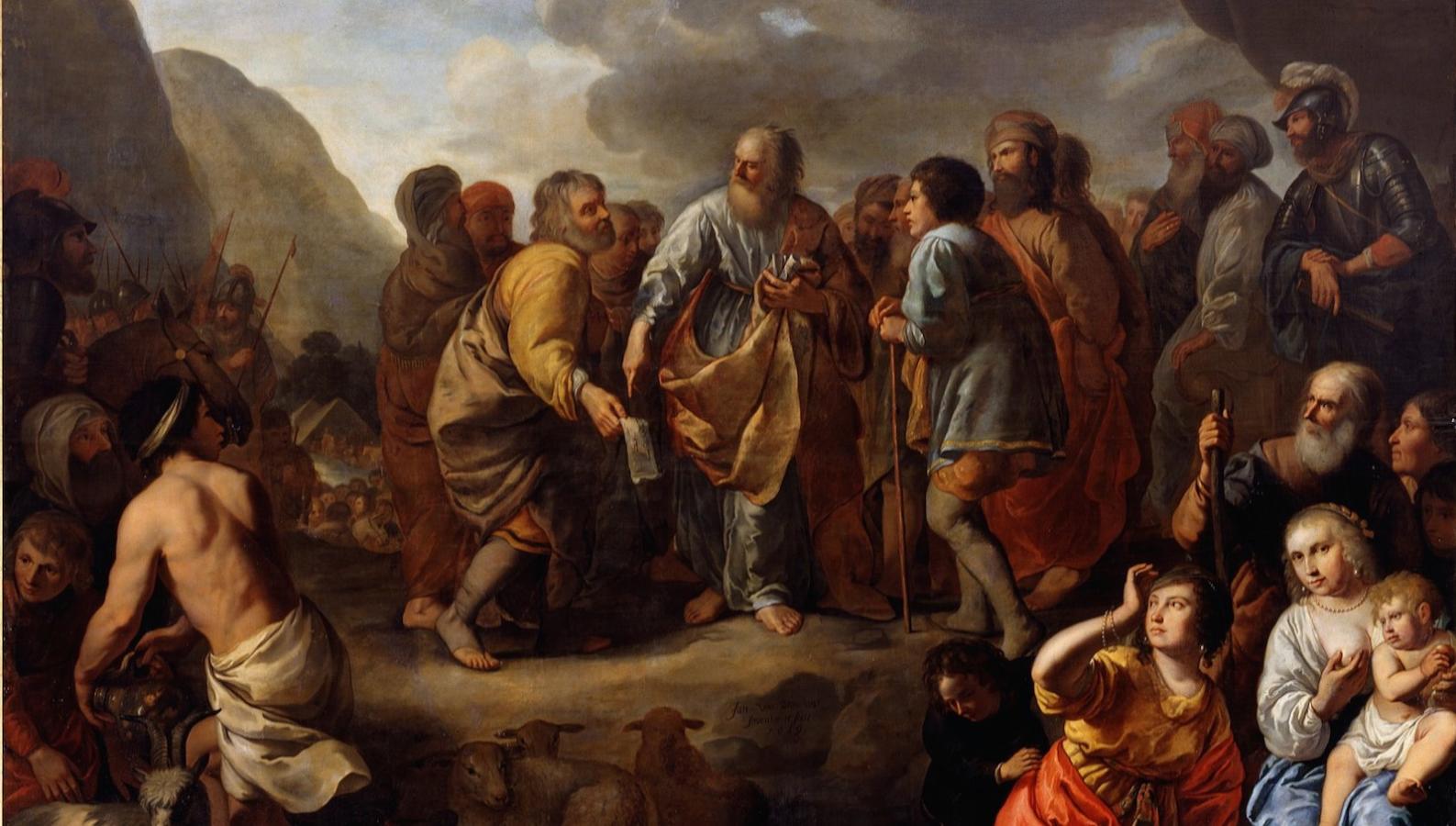
The system Jethro describes provides for a far more efficient means of dealing with questions and conflicts. First recourse, apparently, would be to the judge appointed to you personally: one for every ten Israelites. Jethro recognized that Moses could not possibly be personally involved in the life of every Israelite. But in this way, every member of the community could talk to someone who knew them very well. Similarly, John Wesley divided the first Methodists into classes, or bands; small groups for prayer and support that met weekly
To speak each of us in order, freely and plainly, the true state of our souls, with the faults we have committed in thought, word, or deed, and the temptations we have felt since our last meeting (John Wesley, “Rules of the Bands,” 1744; cited in John Wesley, ed. Albert C. Outler, Library of Protestant Thought [New York: Oxford, 1964], 180).
Jethro also proposed providing higher courts of appeal: judges over fifties, hundreds and thousands. These persons could deal with problems too severe or widespread for the judges over tens. Only the most important cases would then be appealed ultimately to Moses himself (Exod 18:22).
Obviously, Jethro’s proposal spares Moses a great deal of work. But that is by no means all that it does. Remember Jethro’s observation that the people, as well as Moses, were being worn out by the old ways. They had no voice, no real participation in decision-making. But once this program is in operation, “they will share your load” (18:22). Jethro’s proposal shares power and responsibility broadly, among the people whose daily lives are effected by the decisions made. Jethro predicts that this program will lead to greater satisfaction and tranquility: “all these people will go to their home in peace” (18:23).
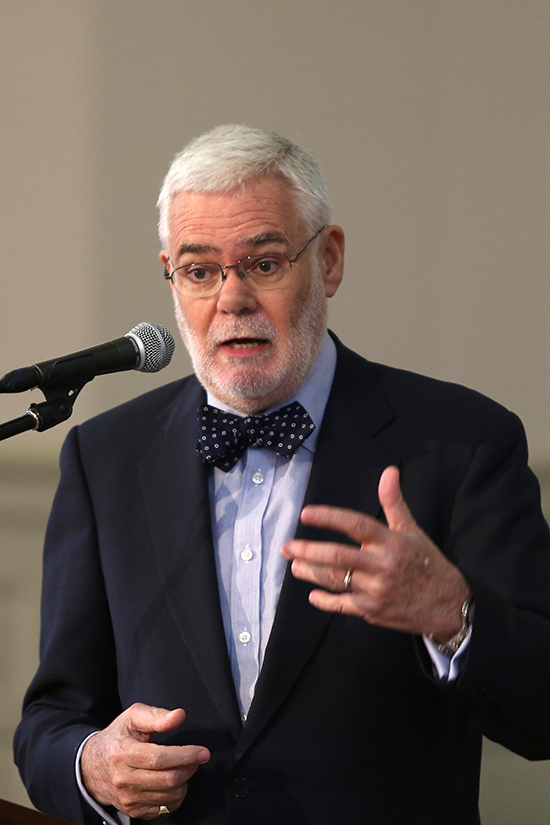
So—what lessons applicable to our current circumstances can we draw from Jethro’s practical admonition to this son-in-law? Andrew Purves addresses his transformational book The Crucifixion of Ministry primarily “to busy, tired, somewhat depressed, midcareer, and fed-up ministers who can’t carry the load of ministry any longer”—in short, to pastors like Moses in Exodus 18 (The Crucifixion of Ministry: Surrendering Our Ambitions to the Service of Christ [Downers Grove, IL: Intervarsity, 2002], 11)! At the very beginning of his book, Purves describes a conversation with his wife about her frustration with pastoral ministry, “that no matter what she tried, nothing seemed to change.”
Suddenly, I mean out of the blue, I had the insight that there is little, maybe nothing, we who are ministers of the gospel can do that really changes things. If anything worthwhile is to happen, Jesus has to show up. . . . Walking on the beach I was suddenly aware that our attempt to be effective ministers is a major problem. We are in the way. Our strategies, action plans, pastoral resources and entrepreneurial church revitalization techniques have become not the solution but the problem. Our ministries need to be crucified. They need to be killed off. What if Jesus showed up? That’s our only hope. Our people don’t need us; they need Jesus. Our job is to bear witness to him. (Purves, 9-10)
The purpose of his book, Purves writes, “is to offer a perspective on ministry and illustrate a practice that liberates ministers from the grind of feeling that ‘It’s all up to me.’” That perspective begins with a crucial insight: “Conceiving ministry as our ministry is the root problem of what ails us in ministry today.” Instead, “Ministry should be understood as a sharing in the continuing ministry of Jesus Christ” (Purves, 11).
.jpg)
L. Roger Owens describes a different sort of problem with the goal-driven ministry Purves decries: what if it succeeds?
My problem was that I was doing it well and seeing results. I’d put on the mask of the visionary leader and I wore it convincingly. But after five years of wearing it, the mask was beginning to chafe. . . I’d been going against the grain for five years, and was suffering because of it—physically, emotionally, psychologically, spiritually. I was contemplating how to get out (“Staying with God: Eugene Peterson and John Chapman on Contemplation,” in Pastoral Work: Engagements with the Vision of Eugene Peterson, eds. Jason Byassee and L. Roger Owens [Cascade Press, 2014], 131-32).
For Owens as for Purves, the way forward is a reorientation, away from “practicing ministry with the unconscious assumption that if I don’t make something good happen here it never will” (Owens, 132) and back toward Christ, through contemplative spiritual practice. Part of trusting in God is trusting that God is at work, in ways we do not know and cannot see or control.
Another point worthy of note is that we need to find a Jethro of our own. Each of us needs someone who knows us well, and loves us enough to confront us with hard truths. In Judaism, this truth finds expression in Mishnah:
Joshua ben Perahiah used to say: appoint for thyself a teacher, and acquire for thyself a companion and judge all men with the scale weighted in his favor (Pirkei Avot 1:6).
Seek out a spiritual director or covenant group, and see them regularly.
We would do Jethro’s wise counsel a disservice if we did not mention a theme that runs through the entire plan. Jethro begins with a blessing: “Now listen to me and let me give you some advice. And may God be with you!” (Exod 18:19). The people sought out to be judges, he directs, must be people of reverence, who “respect [the Hebrew actually is “fear”!] God” (Exod 18:21). Finally, Jethro concludes by saying, “If you do this and God directs you, then you will be able to endure. And all these people will be able to go back to their homes much happier.” (Exod 18:23). Jethro’s counsel is godly counsel. He places it before Moses for prayerful consideration; only if Moses is commanded by God to take this step should the counsel be followed at all.
To be sure, this tells us something important about Jethro. As a wise counselor, he was also a person of faith, willing to submit his own plans to the direction and guidance of God. But Jethro’s stipulation that the installation of judges should only take place at God’s command also tells us something important about the system itself. Note that Moses followed his father-in-law’s advice, as 18:24-26 describes. Although God’s command is not explicitly described, we can assume that Moses believed this structure to represent God’s will.
One final note on Jethro as wise counselor: when the job was done, “Jethro went back to his own country” (Exod 18:27). Jethro did not have to stick around and compulsively fiddle with the structure he had devised. Nor did he have any need or desire to be a back-seat driver, looking over Moses’ shoulder. Jethro was himself able to let go, trusting that God was at work, and trusting Moses to handle matters that arose as Moses saw fit. In other words, Jethro was that rare and wonderful commodity, an advisor who was able to take his own advice.
AFTERWORD:
October is also a month of birthdays in my family–both mine and my Dad’s! Every October, I look for a chance to recite, or post, this wonderful bit of Suessian whimsy! God bless you all, my friends, and thank you for your birthday greetings.






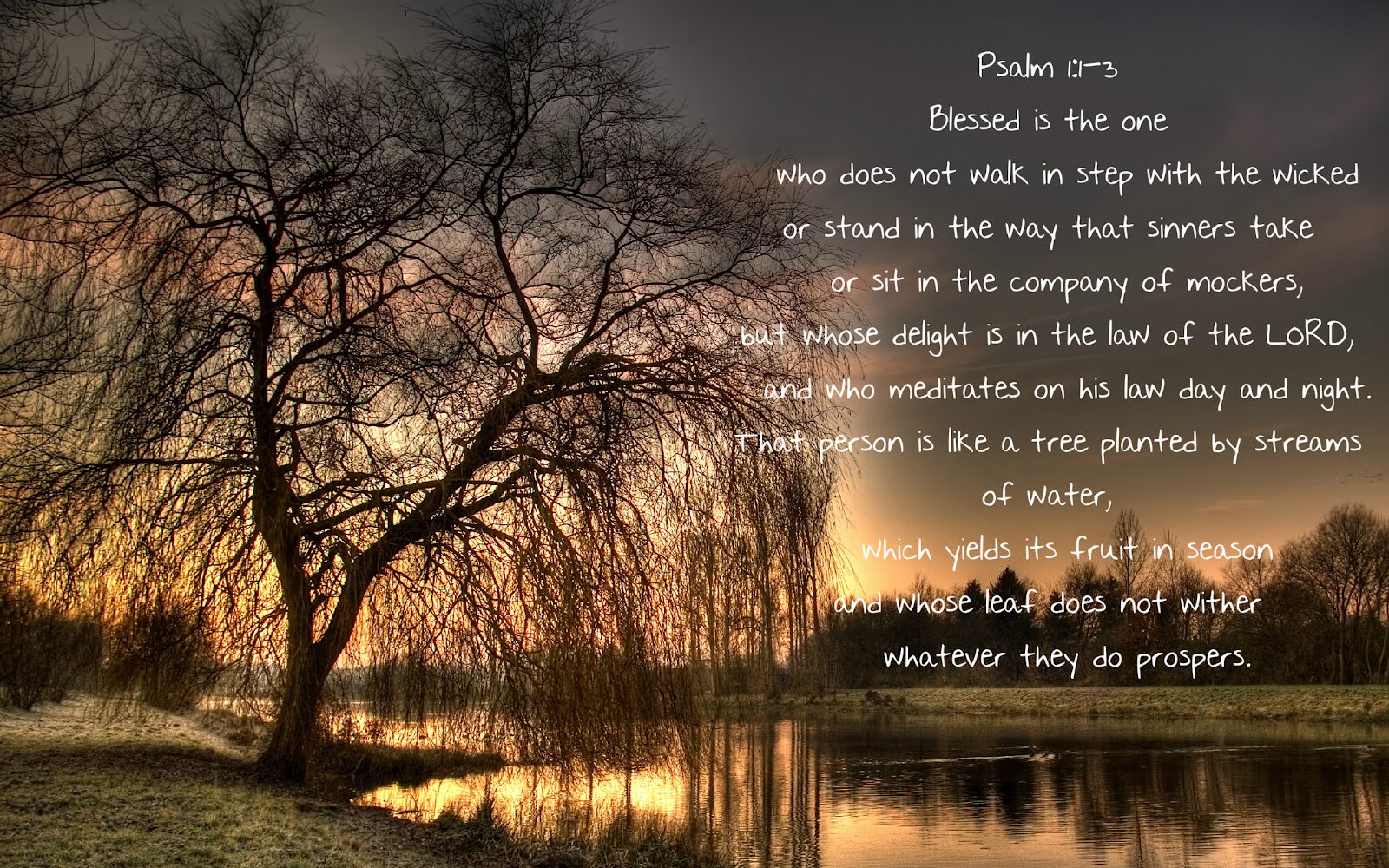





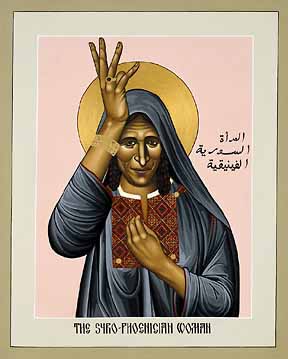
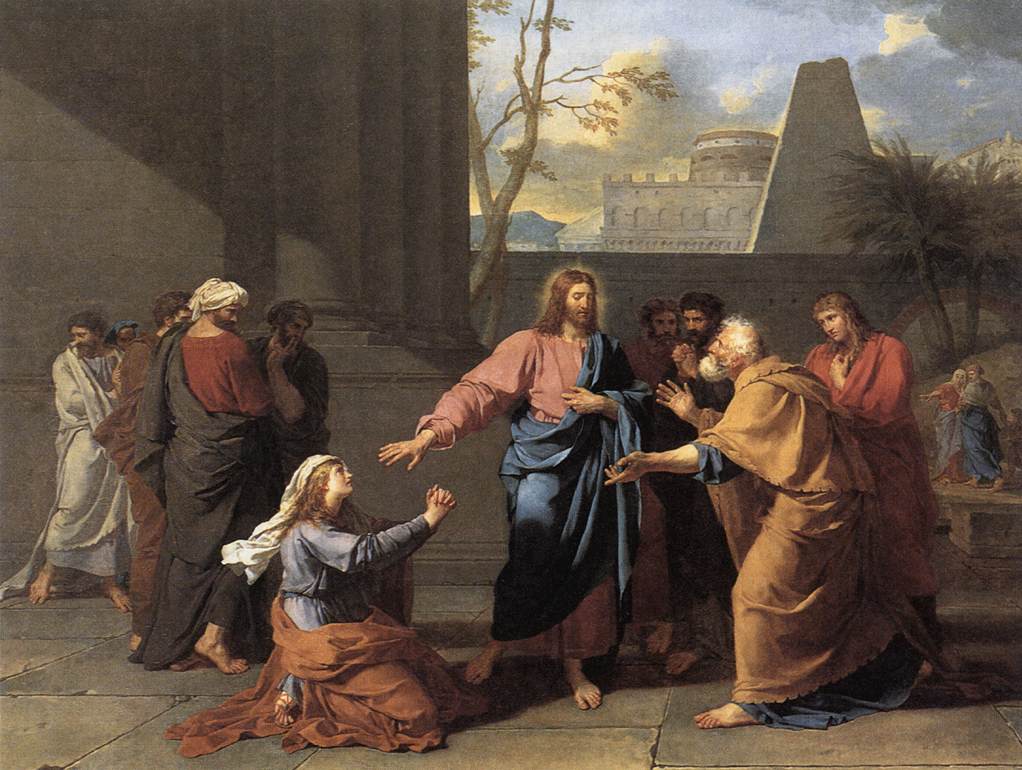
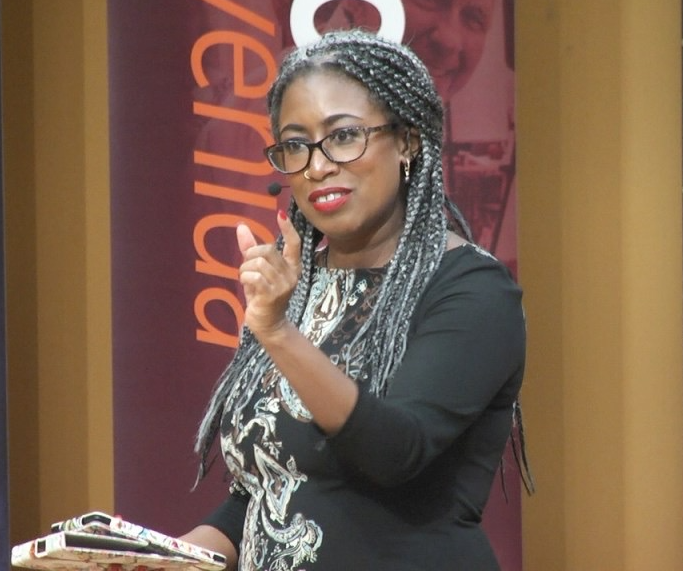



 We often hear people insist that they don’t need to go to church–they can meet God in nature, or on the golf course. That is true—God is everywhere, and we might meet God anywhere. But, God does meet us here!
We often hear people insist that they don’t need to go to church–they can meet God in nature, or on the golf course. That is true—God is everywhere, and we might meet God anywhere. But, God does meet us here! At the beginning of David’s reign, all Israel had come to Hebron to acknowledge David’s rulership (
At the beginning of David’s reign, all Israel had come to Hebron to acknowledge David’s rulership (




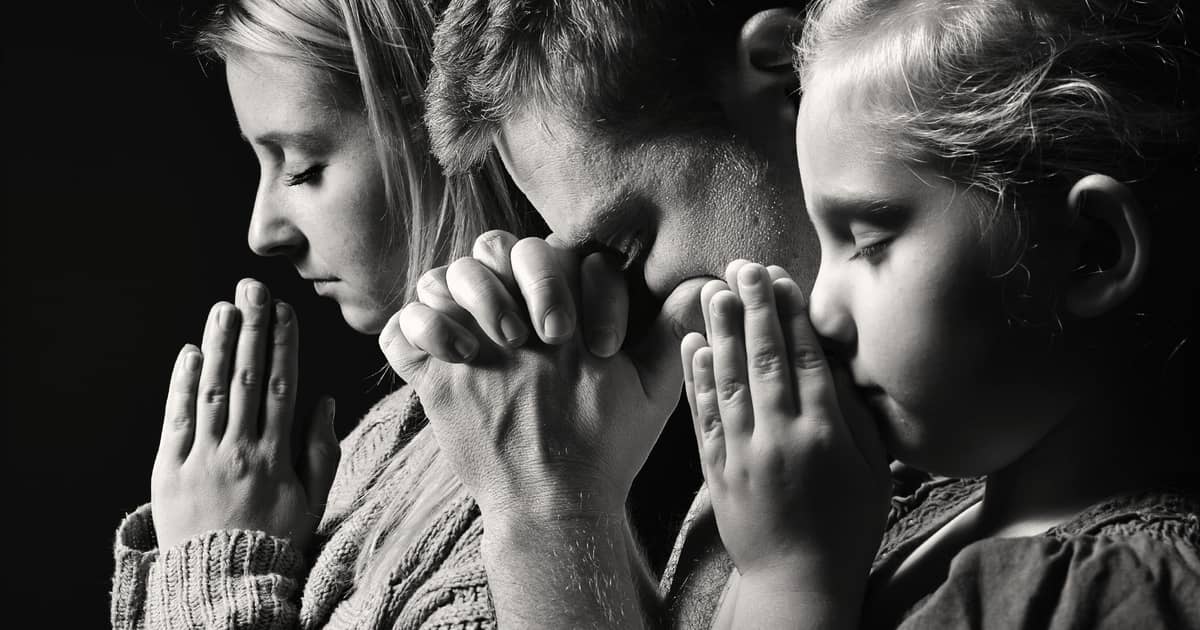
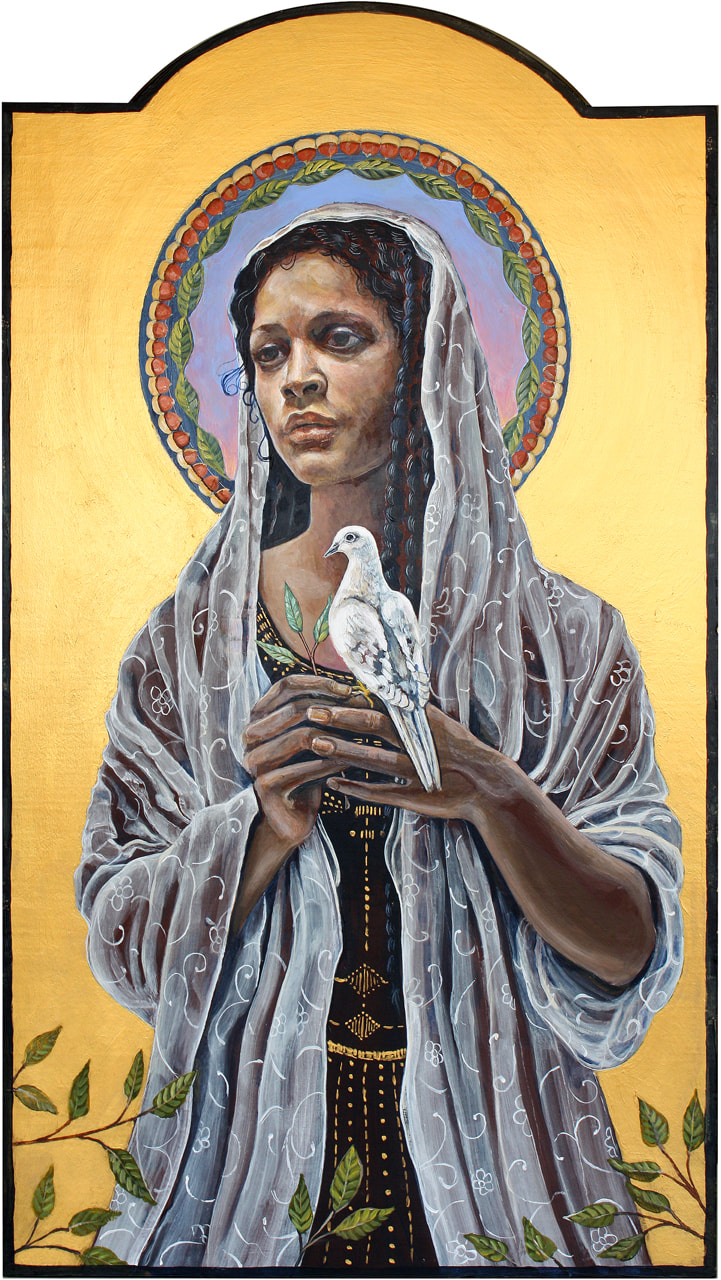 Today, July 22, is the feast of Mary Magdalene. All of the gospels (including the idiosyncratic Fourth Gospel; see
Today, July 22, is the feast of Mary Magdalene. All of the gospels (including the idiosyncratic Fourth Gospel; see 



